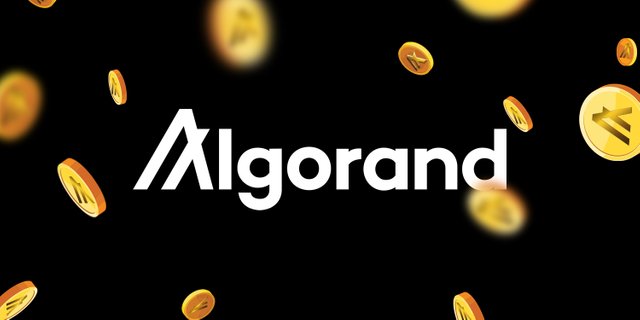-
 Bitcoin
Bitcoin $104,501.0785
1.33% -
 Ethereum
Ethereum $2,501.4714
0.82% -
 Tether USDt
Tether USDt $1.0001
0.00% -
 XRP
XRP $2.3728
-1.86% -
 BNB
BNB $653.6879
0.10% -
 Solana
Solana $172.5333
0.55% -
 USDC
USDC $1.0000
0.02% -
 Dogecoin
Dogecoin $0.2321
-0.30% -
 Cardano
Cardano $0.8090
-0.41% -
 TRON
TRON $0.2626
0.80% -
 Sui
Sui $3.9885
0.37% -
 Chainlink
Chainlink $16.9785
1.82% -
 Avalanche
Avalanche $24.7460
1.39% -
 Stellar
Stellar $0.3078
0.34% -
 Shiba Inu
Shiba Inu $0.0...01598
0.51% -
 Hedera
Hedera $0.2050
-2.98% -
 Toncoin
Toncoin $3.3835
0.36% -
 Hyperliquid
Hyperliquid $24.9448
-0.47% -
 Bitcoin Cash
Bitcoin Cash $410.6426
-2.21% -
 Polkadot
Polkadot $5.1330
1.43% -
 UNUS SED LEO
UNUS SED LEO $8.3658
-2.85% -
 Pi
Pi $1.0816
46.10% -
 Litecoin
Litecoin $100.3323
-2.52% -
 Monero
Monero $338.9001
4.83% -
 Pepe
Pepe $0.0...01378
3.47% -
 Bitget Token
Bitget Token $4.8583
0.47% -
 Dai
Dai $0.9998
-0.01% -
 Ethena USDe
Ethena USDe $1.0001
0.00% -
 Uniswap
Uniswap $6.9111
0.61% -
 Bittensor
Bittensor $450.6103
0.64%
What is ALGO coin? Introduction to the issue price, total amount and white paper of ALGO coins
ALGO, the native cryptocurrency of the Algorand blockchain, was initially offered for $0.24 during its ICO in June 2019 and has a total supply of 10 billion units.
Nov 06, 2024 at 07:10 am

Understanding ALGO Coin: Issue Price, Total Supply, and Whitepaper
1. What is ALGO Coin?
ALGO is the native cryptocurrency of the Algorand blockchain, a decentralized platform developed by the Algorand Foundation. It is designed to provide scalability, security, and efficiency in blockchain technology.
2. Issue Price and Total Supply
- Initial Coin Offering (ICO) Price: $0.24 (June 19, 2019)
- Total Supply: 10,000,000,000 ALGO
3. Whitepaper
The Algorand whitepaper, titled "The Algorand Protocol: Scalable Byzantine Agreement for Cryptocurrencies", was published in 2016. It outlines the technical details of the platform, including its unique consensus mechanism called Pure Proof-of-Stake (PPoS).
3. Key Whitepaper Highlights
- PPoS Consensus Mechanism: A novel consensus mechanism that selects a random subset of validators to participate in the block creation process, ensuring both decentralization and efficiency.
- Instant Block Finality: Blocks on Algorand are finalized immediately after creation, providing real-time confirmation of transactions and eliminating the risk of chain forks.
- Low Transaction Fees: Transactions on Algorand typically cost a fraction of a cent, making it a cost-effective platform for applications and everyday transactions.
- Scalability: Algorand's architecture is designed to handle high volumes of transactions without compromising performance, enabling it to scale to meet growing demand.
- Governance: The Algorand Foundation manages the platform and oversees its operation, while the ALGO token holders have the ability to participate in governance through voting on protocol upgrades.
Conclusion
ALGO coin is the backbone of the Algorand blockchain, providing scalability, security, and efficiency for decentralized applications. Its unique consensus mechanism, instant block finality, and affordable transaction fees make it a promising contender in the blockchain ecosystem. Its comprehensive whitepaper provides a detailed understanding of the platform's technical foundations, enabling developers and users to fully comprehend its capabilities and potential.
Disclaimer:info@kdj.com
The information provided is not trading advice. kdj.com does not assume any responsibility for any investments made based on the information provided in this article. Cryptocurrencies are highly volatile and it is highly recommended that you invest with caution after thorough research!
If you believe that the content used on this website infringes your copyright, please contact us immediately (info@kdj.com) and we will delete it promptly.
- 5 Best Altcoins to Buy Before the Next Breakout Moment
- 2025-05-12 01:50:13
- Using Bitcoin to Buy Real Estate
- 2025-05-12 01:50:13
- The Web3 Trifecta: Qubetics, Stacks, and ASI Alliance Rank Among the Top Cryptos for Massive Growth
- 2025-05-12 01:45:13
- Qubetics (TICS): The Best Altcoins to Buy for May 2025
- 2025-05-12 01:45:13
- Rubbish dumped at a Huddersfield play park has made parents and children "sick to their stomachs"
- 2025-05-12 01:40:12
- Polyverse (PTC) Is Now Available for Trading on LBank Exchange
- 2025-05-12 01:40:12
Related knowledge

What is Ethereum’s Slashing mechanism and how to punish malicious behavior?
Feb 20,2025 at 03:08am
Key PointsOverview of slashingDifferent types of slashing in EthereumIncentives and consequences of slashingIdentifying and reporting slashed validatorsOngoing discussions and potential improvementsEthereum's Slashing Mechanism: Punishing Malicious BehaviorEthereum's slashing mechanism is an essential tool for ensuring network security and punishing mal...

What is the verifier node of Ethereum and how to become a verifier?
Feb 19,2025 at 06:00pm
The Verifier Node of Ethereum: A Comprehensive GuideKey Points:What is a Verifier Node?How to Become a Verifier NodeResponsibilities and Rewards of a Verifier NodeMinimum Requirements for Becoming a Verifier NodePotential Difficulties in Running a Verifier Node1. What is a Verifier Node?A Verifier Node is an independent entity on the Ethereum network th...

What is Ethereum’s staking, and how to participate and earn money?
Feb 19,2025 at 04:37pm
Key Points:Understanding Ethereum's Staking MechanismSteps to Participate in StakingBenefits and Rewards of StakingSecurity and Risk ConsiderationsTechnical Requirements and Hardware OptionsPotential Challenges and Troubleshooting TipsFAQs on Ethereum StakingWhat is Ethereum's Staking?Proof-of-Stake (PoS) is a consensus mechanism used in blockchain netw...

What is Ethereum’s DAO (Decentralized Autonomous Organization) and how does it work?
Feb 20,2025 at 03:12am
Key PointsDefinition and Structure of a DAOGovernance and Decision-Making in DAOsBenefits and Use Cases of DAOsChallenges and Limitations of DAOsWhat is Ethereum's DAO (Decentralized Autonomous Organization) and How Does It Work?Definition and Structure of a DAOA Decentralized Autonomous Organization (DAO) is an innovative governance and management fram...

What is Ethereum's multi-signature wallet and how to improve security?
Feb 20,2025 at 02:18pm
Key Points:Understanding the Concept of a Multi-Signature WalletBenefits and Drawbacks of Multisig WalletsRequirements for Setting Up a Multisig WalletStep-by-Step Guide to Generating a Multisig WalletImplementing Strategies for Enhanced Security1. Understanding the Concept of a Multi-Signature WalletA multi-signature (multisig) wallet in the Ethereum e...

What is Ethereum's oracle and how to provide data for smart contracts?
Feb 21,2025 at 01:30am
Key Points:Understanding the concept of oracles in EthereumExploring different types of oraclesDetailed guide on how to provide data for smart contractsAddressing potential challenges and considerationsWhat is Ethereum's Oracle?Oracles are crucial components in the Ethereum ecosystem, enabling smart contracts to access real-world data and off-chain even...

What is Ethereum’s Slashing mechanism and how to punish malicious behavior?
Feb 20,2025 at 03:08am
Key PointsOverview of slashingDifferent types of slashing in EthereumIncentives and consequences of slashingIdentifying and reporting slashed validatorsOngoing discussions and potential improvementsEthereum's Slashing Mechanism: Punishing Malicious BehaviorEthereum's slashing mechanism is an essential tool for ensuring network security and punishing mal...

What is the verifier node of Ethereum and how to become a verifier?
Feb 19,2025 at 06:00pm
The Verifier Node of Ethereum: A Comprehensive GuideKey Points:What is a Verifier Node?How to Become a Verifier NodeResponsibilities and Rewards of a Verifier NodeMinimum Requirements for Becoming a Verifier NodePotential Difficulties in Running a Verifier Node1. What is a Verifier Node?A Verifier Node is an independent entity on the Ethereum network th...

What is Ethereum’s staking, and how to participate and earn money?
Feb 19,2025 at 04:37pm
Key Points:Understanding Ethereum's Staking MechanismSteps to Participate in StakingBenefits and Rewards of StakingSecurity and Risk ConsiderationsTechnical Requirements and Hardware OptionsPotential Challenges and Troubleshooting TipsFAQs on Ethereum StakingWhat is Ethereum's Staking?Proof-of-Stake (PoS) is a consensus mechanism used in blockchain netw...

What is Ethereum’s DAO (Decentralized Autonomous Organization) and how does it work?
Feb 20,2025 at 03:12am
Key PointsDefinition and Structure of a DAOGovernance and Decision-Making in DAOsBenefits and Use Cases of DAOsChallenges and Limitations of DAOsWhat is Ethereum's DAO (Decentralized Autonomous Organization) and How Does It Work?Definition and Structure of a DAOA Decentralized Autonomous Organization (DAO) is an innovative governance and management fram...

What is Ethereum's multi-signature wallet and how to improve security?
Feb 20,2025 at 02:18pm
Key Points:Understanding the Concept of a Multi-Signature WalletBenefits and Drawbacks of Multisig WalletsRequirements for Setting Up a Multisig WalletStep-by-Step Guide to Generating a Multisig WalletImplementing Strategies for Enhanced Security1. Understanding the Concept of a Multi-Signature WalletA multi-signature (multisig) wallet in the Ethereum e...

What is Ethereum's oracle and how to provide data for smart contracts?
Feb 21,2025 at 01:30am
Key Points:Understanding the concept of oracles in EthereumExploring different types of oraclesDetailed guide on how to provide data for smart contractsAddressing potential challenges and considerationsWhat is Ethereum's Oracle?Oracles are crucial components in the Ethereum ecosystem, enabling smart contracts to access real-world data and off-chain even...
See all articles





















































































